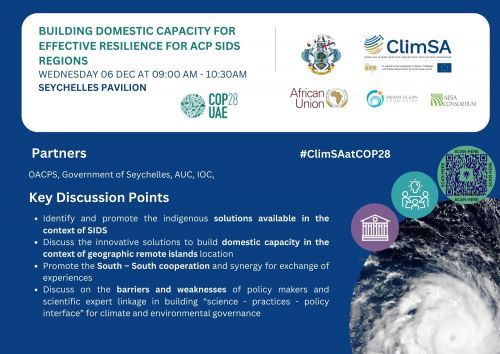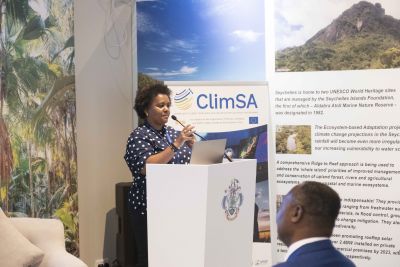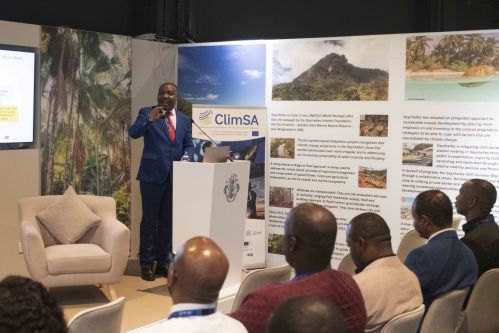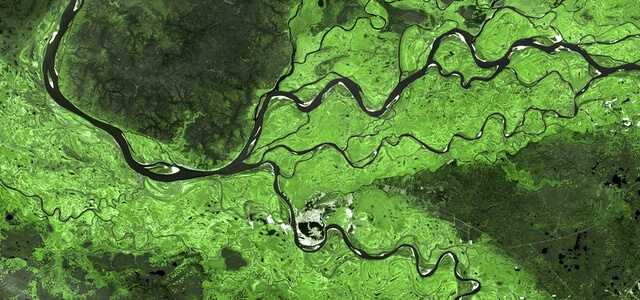
On November 6, 2023, a joint side event was held at COP28 in Seychelles Pavilion, featuring the Organization of the ACP States (OACPS), the African Union Commission, the Indian Ocean Commission, and the Seychelles Government. This collaborative effort aimed to address the pressing issue of climate change impacts on Small Island Developing States (SIDS) within the OACPS, focusing on building domestic capacity for effective resilience. The event shed light on the unique challenges faced by these vulnerable nations and proposed a strategy framework to enhance their capacity to combat climate change.
The intra-ACP Climate Services and Related Applications Program (ClimSA) has been developed by the OACPS Secretariat in partnership with the EU under the 11th European Development Fund (EDF) to address these challenges. Despite ongoing efforts, the uptake of climate services remained inadequate. In response, the OACPS Secretariat, in collaboration with Regional Climate Centres (RCCs), proposed a strategy framework to build the domestic capacity of regional and national experts. This strategy aimed to develop and apply science-based climate services to foster sustainable development and societal transformation.

The Assistant Secretary-General of the OACPS Secretariat for Environment and Climate Action Department emphasized the imperative for policy and decision-makers to prioritize and invest resources in strengthening and sustaining SIDS national capacities in climate services, highlighting their crucial role in sustainability and resilience.
The OACPS, comprising 79 countries from sub-Saharan Africa, the Caribbean, and the Pacific, stood at the forefront of vulnerability to climate change. With 37 member countries classified as SIDS, these nations grappled with low adaptive capacity and intrinsic exposure to climate change due to their geographical conditions.
The Director Gina Bonne of the Indian Ocean Commission advocated for South-South Cooperation to bridge the capacity gap, highlighting the similarities in challenges faced by OACPS SIDS and inland countries on the African Continent.

The CEO of Seychelles Meteorological Authority, Mr Vincent Amelie emphasized the need for a shift in the practice of climate services providers to align with the changing needs of users, especially in the context of the current climate crisis faced by SIDS.
Dr Faka Team leader of ClimSA Technical Assistance team presented a summary of the capacity-building strategy developed under the ClimSA Programme. He pointed out the primary purpose of the capacity-building strategy which is to empower national and regional experts to design, formulate, and tailor climate services to meet the specific needs of users in various climate-sensitive sectors. This strategy would contribute to the development of useful climate knowledge and services for regional and national climate strategies and plans, aligning with the UNFCCC and the UN Sustainable Development Goals.

The side event session demonstrated the shared climate change threats faced by all SIDS. Dr Daniel, the Expert from the University of Seychelles identified and promoted solutions within the context of SIDS and discussed innovative solutions for building domestic capacity in the unique context of geographically remote islands.
Overall, the event promoted South-South cooperation and synergy for the exchange of experiences. The setting at COP28 facilitated the discussion on the barriers and weaknesses in the linkage between policymakers and scientific experts, emphasizing the importance of the "science-practices-policy interface" for climate and environmental governance. For the wider audience, the side event increased awareness among stakeholders regarding domestic solutions for facing climate change impacts.
In conclusion, the joint side event at COP28 presented a significant opportunity for OACPS, the African Union Commission, the Indian Ocean Commission, and the Seychelles Government to collectively address the challenges faced by SIDS in the context of climate change. By focusing on building domestic capacity, the event aimed to pave the way for a more resilient and sustainable future for these vulnerable nations.

